Wasps
Kindra6b7a
11 years ago
Related Stories
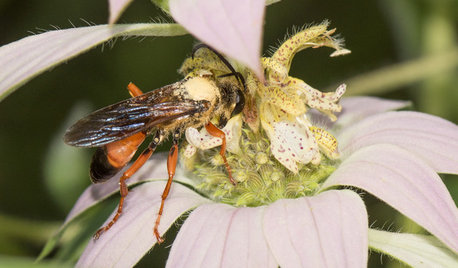
GARDENING GUIDESGreat Golden Digger Wasp: A Beneficial Flower-Visiting Insect
Introducing the great golden digger wasp, a colorful pollinator that also hunts foliage-eating insects
Full Story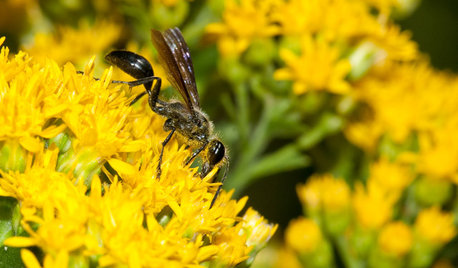
GARDENING GUIDESMeet the Grass-Carrying Wasp, a Gentle Pollinator of Summer Flowers
These fascinating insects nest in wood cavities and hollow plant stems
Full Story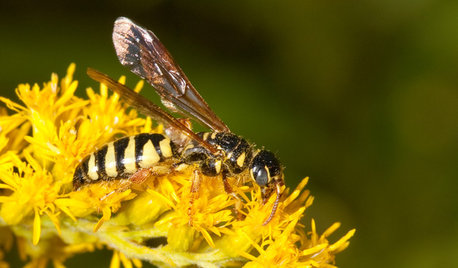
GARDENING GUIDESAttract Thynnid Wasps With Summer-Flowering Native Plants
These beneficial insects will hunt damaging beetle grubs in your lawn
Full Story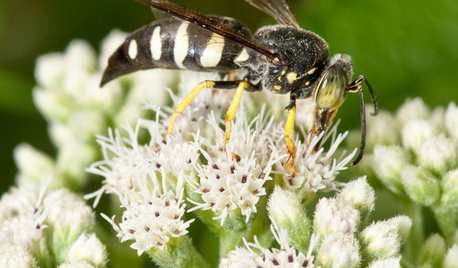
GARDENING GUIDESSand Wasps Keep True Bugs in Check and Help Pollinate Summer Flowers
Look for these solitary wasps nesting in sandy sites and foraging on flowers in July and August
Full Story
ACCESSORIESMake Things Magical With Paper Lanterns
Set some poetry in motion with affordable Asian-style paper lanterns that enchant as everyday or party decor
Full Story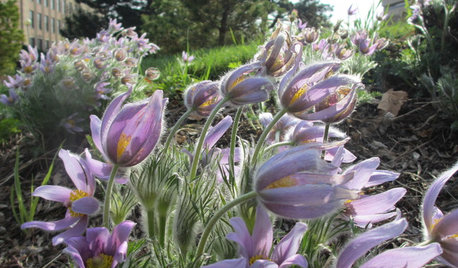
GARDENING GUIDES6 Plants That Beat Butterfly Bush for the Wildlife Draw
It's invasive, a nonnative and a poor insect magnet. Check out these better alternatives to butterfly bush in the garden
Full Story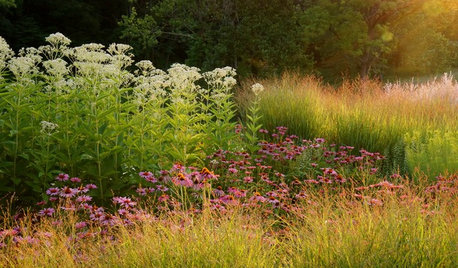
GARDENING FOR BUTTERFLIESGarden for Wildlife to Reap Rich Rewards
When you plant with animals and insects in mind, you make gardening easier, the planet healthier and yourself more present
Full Story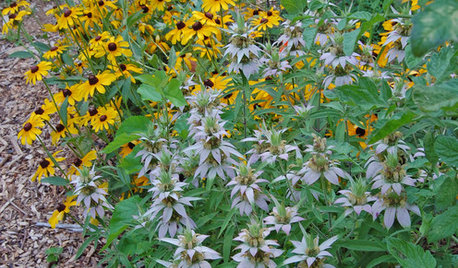
GARDENING GUIDESGreat Design Plant: Spotted Beebalm (Monarda punctata)
Looking for unusual, long-lasting blooms, low maintenance and deer resistance? Try this self-sowing perennial
Full Story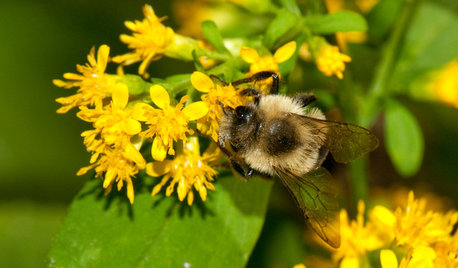
GARDENING GUIDESGreat Design Plant: Solidago Flexicaulis Colors the Fall Shade Garden
Plant zigzag goldenrod in eastern U.S. gardens for its bright yellow flowers and tolerance of a broad range of conditions
Full Story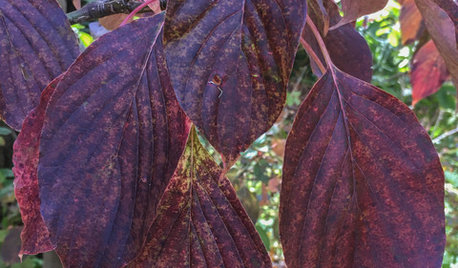
SHRUBSTry This Plant for Autumn Color in the Woodland Garden
Alternateleaf dogwood, or Cornus alternifolia, offers a colorful show of creamy spring flowers, blue fruit in summer and maroon fall foliage
Full StoryMore Discussions






TraceyOKC
susanlynne48
Related Professionals
Benbrook Landscape Architects & Landscape Designers · Brentwood Landscape Architects & Landscape Designers · Lowell Landscape Architects & Landscape Designers · North New Hyde Park Landscape Architects & Landscape Designers · Owings Mills Landscape Architects & Landscape Designers · Allentown Landscape Contractors · Beachwood Landscape Contractors · Canby Landscape Contractors · Del Aire Landscape Contractors · Fort Atkinson Landscape Contractors · Lees Summit Landscape Contractors · Pueblo West Landscape Contractors · Roseville Landscape Contractors · Little Rock Decks, Patios & Outdoor Enclosures · Monroe Decks, Patios & Outdoor EnclosuresMacmex
ponderpaul
Kindra6b7aOriginal Author
Macmex
slowpoke_gardener
mulberryknob
Okiedawn OK Zone 7
TraceyOKC
Macmex
Lisa_H OK
helenh
Pamchesbay
guernica132
Okiedawn OK Zone 7